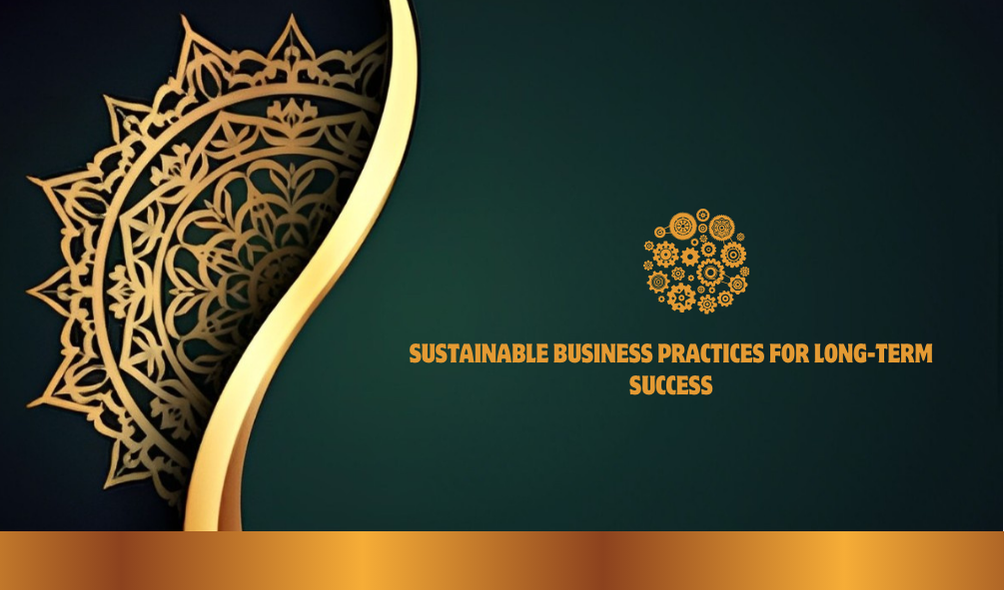Sustainable Business Practices for Long-Term Success Sustainability is no longer just a trend—it’s a business necessity. Companies that adopt sustainable practices not only protect the environment but also enhance their brand reputation, reduce costs, and ensure long-term profitability. As consumers and stakeholders demand more responsible business operations, organizations must integrate sustainability into their core strategies to stay competitive.
What is Sustainable Business?
A sustainable business operates in a way that:
Minimizes environmental impact by reducing waste, emissions, and resource consumption.
Promotes social responsibility by ensuring fair labor practices and community support.
Ensures economic viability by maintaining long-term financial stability while benefiting society.
Why Sustainability Matters in Business
1. Competitive Advantage & Brand Reputation
Consumers prefer brands that align with their values. Companies with strong sustainability initiatives build trust and loyalty.
73% of global consumers are willing to pay more for sustainable products.
Eco-friendly companies attract investors looking for ethical business models.
2. Cost Reduction & Efficiency
Sustainable practices help businesses save money in the long run.
Reducing energy and water consumption lowers operational costs.
Sustainable supply chains minimize waste and improve efficiency.
3. Compliance with Regulations
Governments worldwide are enforcing stricter environmental regulations. Businesses that comply avoid legal risks and financial penalties.
Carbon footprint reporting is becoming mandatory in many countries.
Companies with sustainability certifications gain easier market access.
4. Attracting Talent & Employee Satisfaction
A sustainable company attracts top talent and improves employee engagement.
75% of millennials prefer working for environmentally responsible companies.
Employees in sustainable workplaces report higher job satisfaction.
Key Sustainable Business Practices
1. Energy Efficiency & Renewable Energy Adoption
Use energy-efficient appliances and LED lighting.
Invest in renewable energy sources like solar and wind power.
Implement smart energy management systems.
2. Sustainable Supply Chain Management
Partner with eco-friendly suppliers and ethical manufacturers.
Reduce transportation emissions by sourcing locally.
Implement circular economy principles (recycling & reusing materials).
3. Waste Reduction & Recycling
Reduce packaging waste by using biodegradable or recyclable materials.
Implement waste segregation and recycling programs.
Encourage customers to participate in product recycling initiatives.
4. Eco-Friendly Product Development
Design products with sustainable materials and minimal waste.
Offer repair, refurbishment, or second-life programs.
Reduce water and chemical usage in manufacturing.
5. Ethical Labor Practices & Social Responsibility
Ensure fair wages, safe working conditions, and ethical sourcing.
Support local communities through education, health, and sustainability programs.
Promote diversity, equity, and inclusion in the workplace.
Measuring Sustainability Success
| Metric | Impact |
|---|---|
| Carbon footprint reduction | Lower emissions, improved compliance |
| Energy savings | Reduced operational costs |
| Waste diversion rate | More recycling, less landfill waste |
| Sustainable supplier partnerships | Ethical sourcing & improved brand trust |
| Employee & customer satisfaction | Increased loyalty & engagement |
Conclusion
Sustainable business practices are essential for long-term success. Companies that prioritize environmental, social, and economic responsibility gain a competitive edge, build stronger brand loyalty, and ensure financial stability. By embracing sustainability, businesses can contribute to a better future while securing their own growth and resilience.

